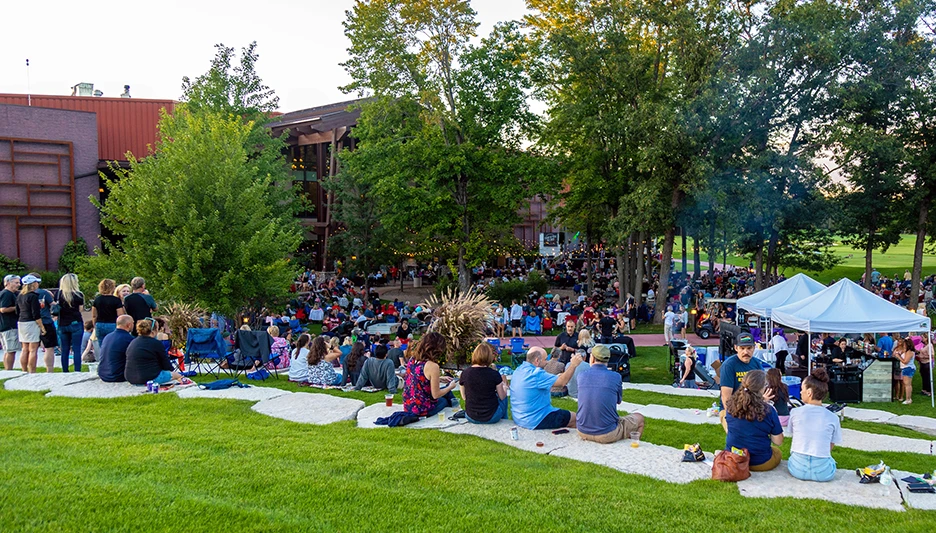
Sentry Insurance
Corporate outings, tournaments and weddings can be large revenue generators for golf courses – if hosted safely without incident. With 2024 here, now’s a good time for operators to prepare for special events in the year ahead.
It’s also important to protect your property from the risk that fire and weather-related damage pose, especially with high repair and replacement prices in the wake of inflation.
While the business of golf is good, one unanticipated – and unmitigated – financial loss could jeopardize your year. Here’s how to help prevent that from happening.
Make clubhouse safety and maintenance a priority
Your guests, members and special events are vital to your success. Take the time to clean, maintain and inspect your property to make it a safe place for them to gather.
Proactive inspections not only benefit your guests, but they can also protect your business. A well-maintained facility can help you avoid significant damage and liability, which over time, may lower your insurance costs.
- Hire a licensed contractor to inspect your electrical and sprinkler systems to mitigate your fire risk, especially if your buildings are older.
- Inspect roofs annually to help prevent the risk of water damage – particularly prior to snowy or rainy months. A well-built and -maintained roof can also hold up better to severe storms, which are becoming more prevalent throughout the country.
- Cover stationary outdoor equipment, including your HVAC systems, to protect against hail damage. Outline a plan to secure equipment, such as golf carts and mowers, if a storm is approaching.
- Hire a professional to examine your kitchen and cooking equipment to ensure safe operation. Cooking is the leading cause of non-residential fires – accounting for 30 percent of incidents – according to the U.S. Fire Administration.
- Clean indoor and outdoor walkways daily and repair all slip, trip and fall hazards immediately. In areas prone to moisture, maintain adequate slip-resistant surfaces.
- Ensure your facilities are big enough to accommodate large gatherings, pursuant to your community’s fire code.
Train and communicate with your employees and vendors
Hosting a special event involves more than a safe venue. It also involves the people your guests rely on. Train your staff and communicate safe procedures to ensure your events take place without incident:
- If you serve alcohol onsite, train bartenders to mitigate overconsumption and underage drinking to manage your legal exposure. If a vendor is organizing an event on your property, determine who’s providing bartenders and confirm they have the necessary certifications and experience.
- Train staff on safe food handling procedures to protect the health and safety of guests.
- Develop a formal, written agreement with vendors and hosting parties. Agreements should clearly identify roles, responsibilities, and expectations for the event – including that guests act responsibly – to help lessen liability.
- Depending on the type of event, provide security for crowd management to help de-escalate incidents that could damage property or lead to injuries.
- Require workplace harassment training for staff and outsourced vendors. The more people attending an event, the greater the unpredictability. Staff who undergo training can help identify, mitigate, and stop unacceptable behavior.
- Onboard and train seasonal workers prior to events. First-year employees at a new job account for more than 25 percent of all workplace injuries, according to the U.S Bureau of Labor Statistics.
Review your golf course insurance to protect against financial loss.
A well-trained team and well-maintained clubhouse are the foundation to hosting safe, successful events. It’s the first, most cost-effective step to protect your business and employees.
Yet, as any business in the industry can attest, accidents happen. Insurance can provide financial support should the unthinkable occur. Take the time now to review the types and amounts of coverage you have before hosting an event.
A few specific coverages can help with event risks, including:
- General liability
- Liquor liability
- Premises and operations liability
- Personal property
- Commercial property
Keep in mind that costs to repair or replace your property have risen dramatically the past few years. Talk with your insurer to go over your property valuations to confirm you’re adequately protected following the effects of inflation.
Just remember: Insurance isn’t a replacement for strong maintenance and training programs.
Looking ahead
These tips are just a guide to spark further thought and conversations. Talk with your insurer and local experts to address risks unique to your course. They can give you more targeted advice. Good luck this year!
Dan Grant is the director of corporate safety services for Sentry Insurance. Sentry insures golf courses throughout the United States, and is the Official Insurance Partner of the USGA, along with the title sponsor The Sentry, a signature PGA TOUR event. Learn more at sentry.com.
Latest from Golf Course Industry
- From the publisher’s pen: Conscientious of a bigger role
- Bernhard and Company partners with Laguna Golf Phuket
- Terre Blanche showcases environmental stewardship
- VIDEO: Introducing our December issue
- Bernhard and Company introduces Soil Scout
- Nu-Pipe donates to GCSAA Foundation’s Centennial Campaign
- GCSAA enhances golf course BMP tool
- Melrose leadership programs sending 18 to 2026 GCSAA Conference and Trade Show





